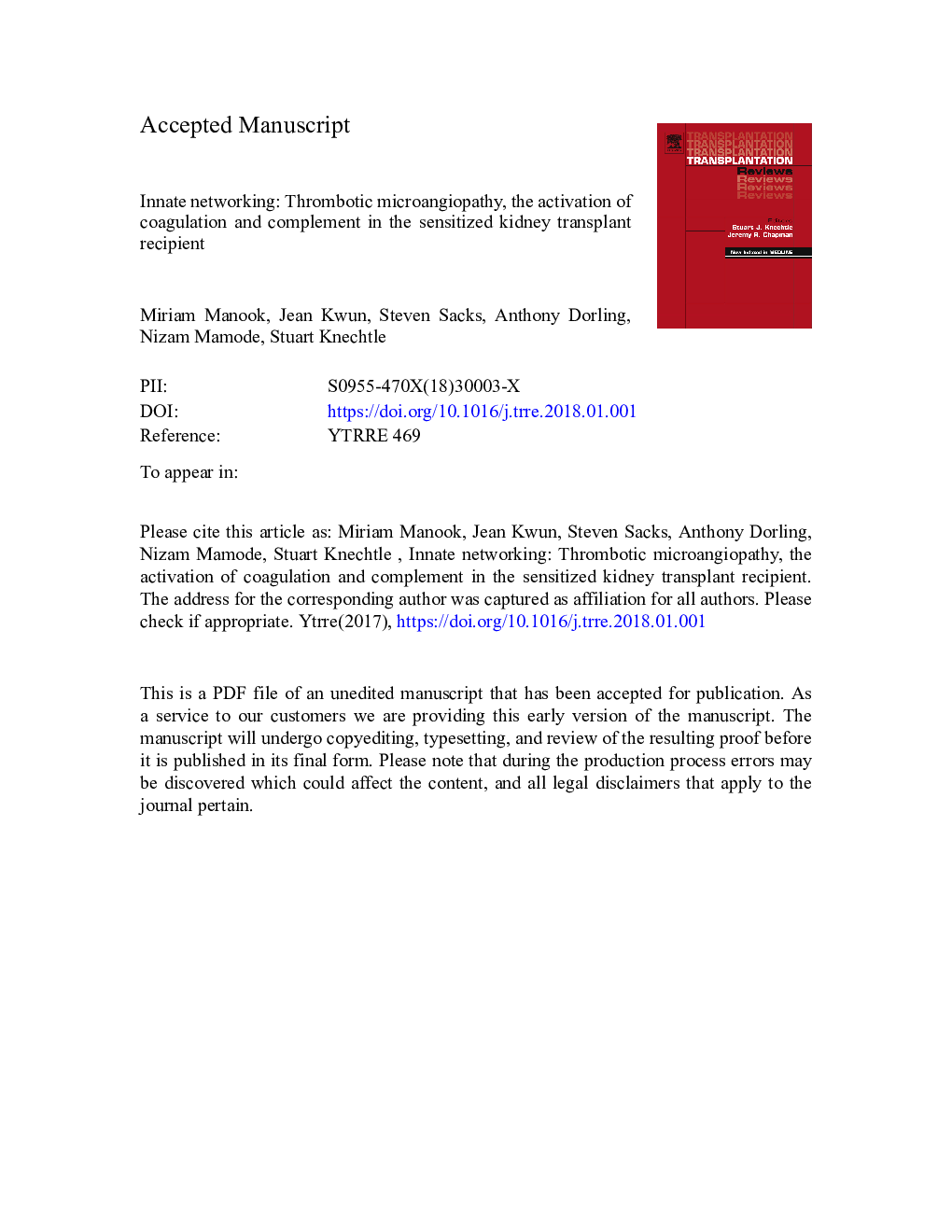| Article ID | Journal | Published Year | Pages | File Type |
|---|---|---|---|---|
| 8827575 | Transplantation Reviews | 2018 | 26 Pages |
Abstract
Thrombotic microangiopathy (TMA) is a histological feature of antibody-mediated rejection and has the potential to cause problematic graft dysfunction, particularly for highly sensitized cross-match positive kidney transplant recipients. Prompt recognition of pertinent histopathological and systemic features of TMA in kidney transplantation is necessary. Underlying mechanisms of this process involve the activation of both complement and coagulation systems as a response to HLA antibody. As serine proteases, coagulation and complement cascades exhibit similar characteristics with respect to homeostatic function. Increasing evidence now exists for the interaction between these innate defenses in both activation and regulation, lending scope for intervention. Understanding the complexities of these interactions remains a challenge. This review provides an overview of the current understanding, particularly with respect to the activation of coagulation and complement by HLA antibody in the setting of highly sensitized kidney transplantation.
Keywords
Related Topics
Health Sciences
Medicine and Dentistry
Transplantation
Authors
Miriam Manook, Jean Kwun, Steven Sacks, Anthony Dorling, Nizam Mamode, Stuart Knechtle,
